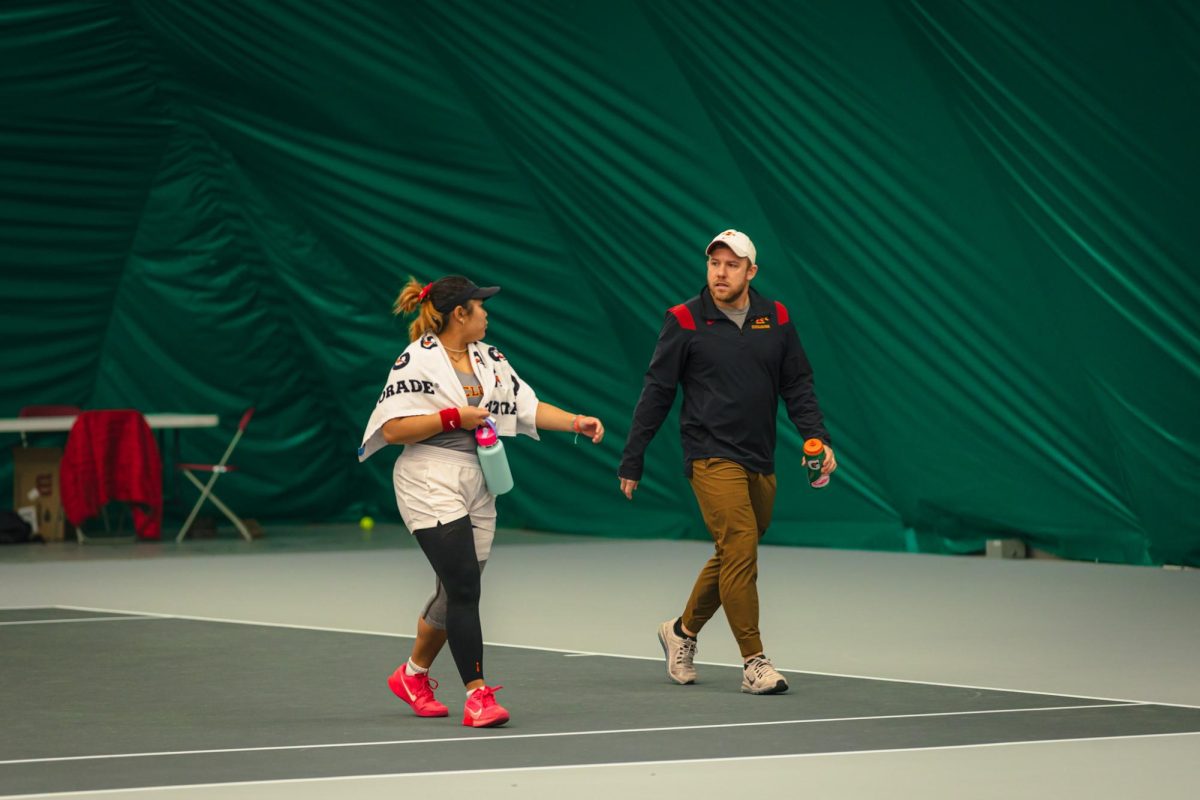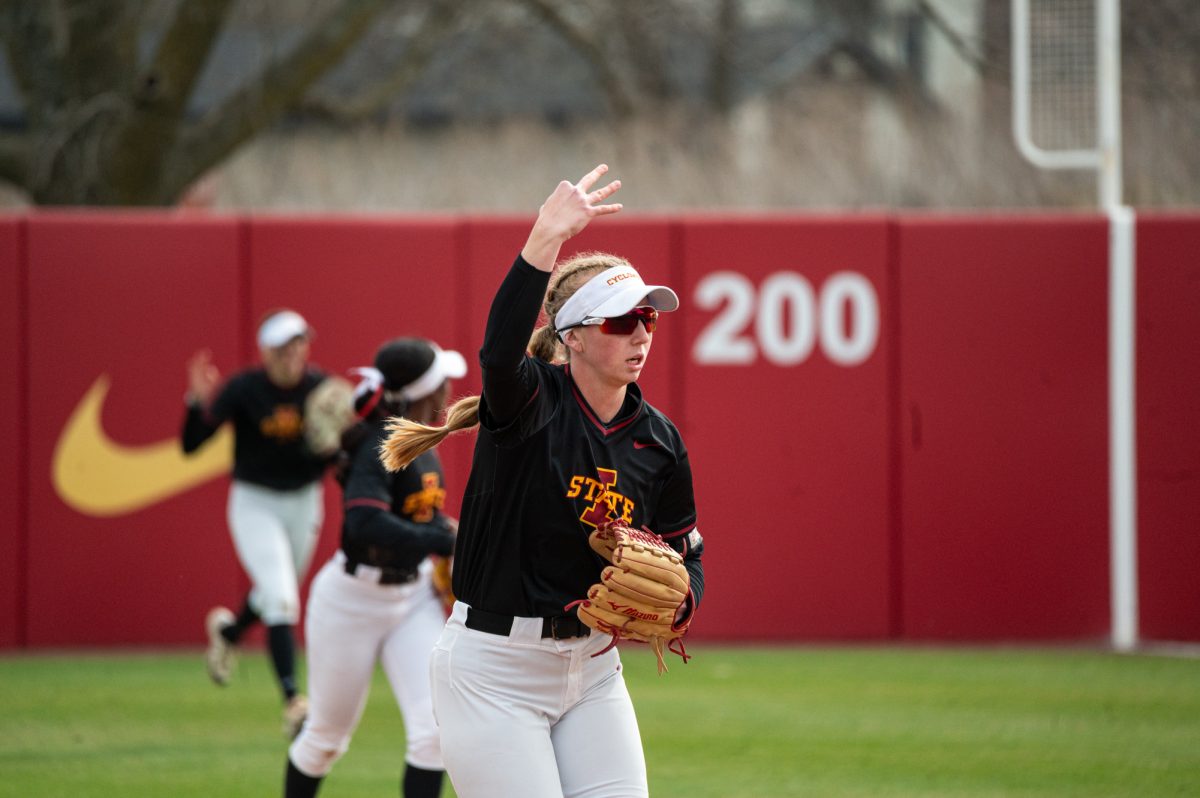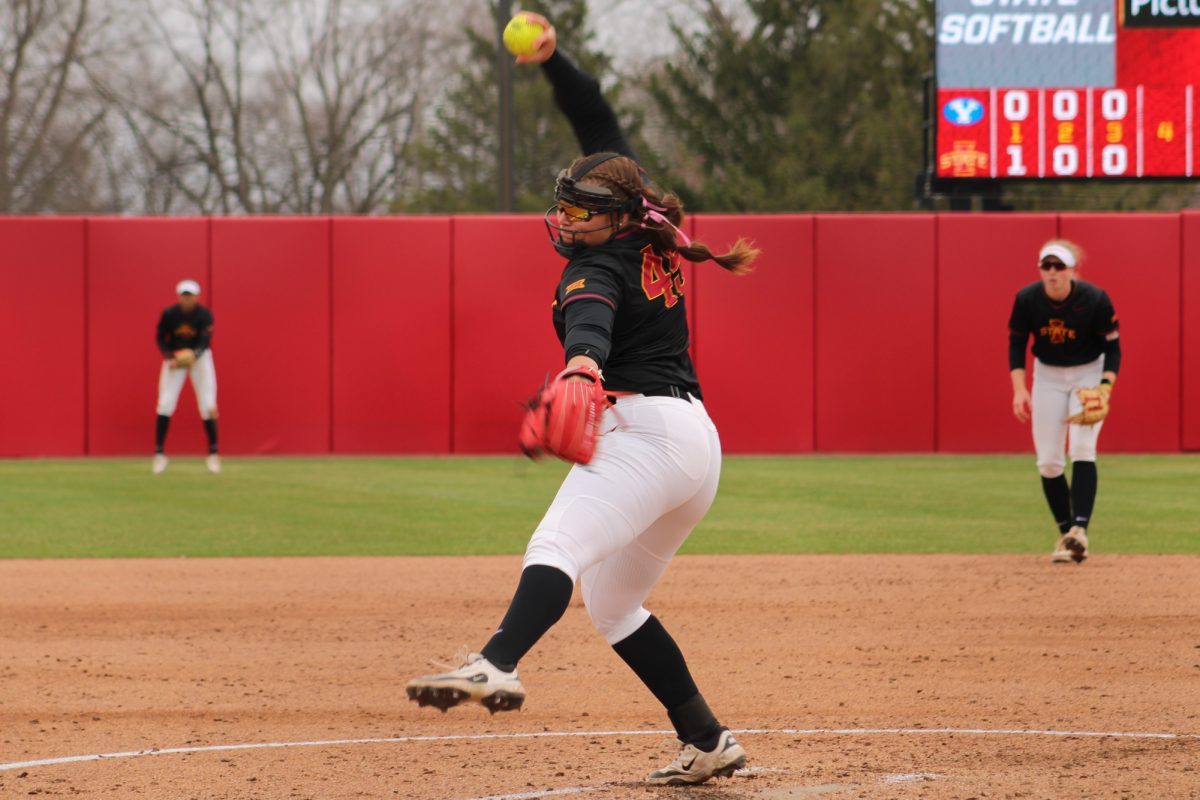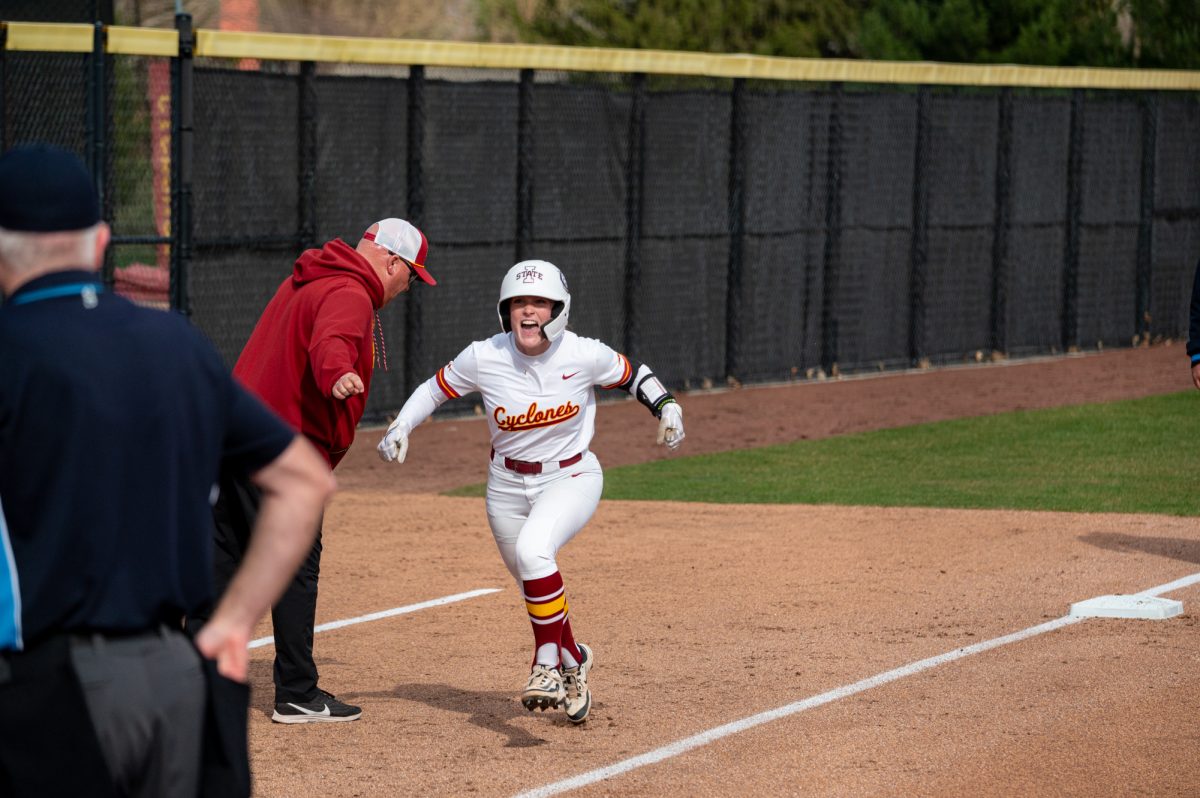Promoting diversity
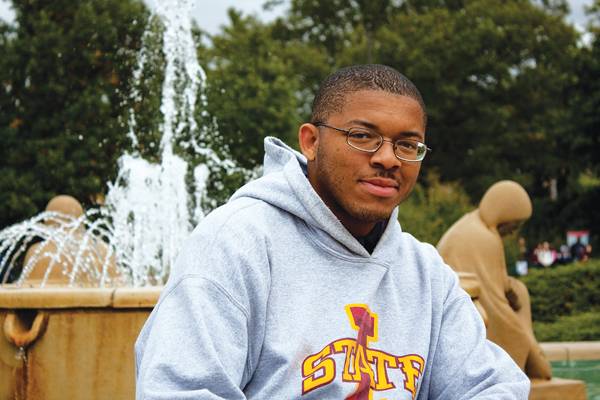
David-Paul Adeola, freshmen in electrical engineering from Kansas City, Mo., was recruited to Iowa State with the help of ISU’s Inner City recruitment program. The program is headed by Professor Derrick K. Rollins, the assistant dean for diversity. Photo: Tim Reuter/Iowa State Daily
September 29, 2009
The extent of diversity at Iowa State may be surprising considering it’s in the middle of a state that is 94 percent white. New recruiting efforts that are part of the Leadership through Engineering Academic Diversity Program coordinated by Derrick Rollins, assistant dean for diversity of the College of Engineering, are working toward making the student experience unique.
“Anything our students can do that helps them learn more about how other people live and work and react can help them in relating to the other people they would be working with, their bosses, the people who would be working for them, their customers [and] their competitors,” said James Dorsett, program manager of international students and scholars. “The days of growing up in a small Iowa town and coming to ISU and never meeting anyone who is not from Iowa or from the Midwest are long gone.”
The Strategic Recruiting Initiative program is a response to the 2050 challenge and a changing workforce, said Lindsey Long, program manager of engineering administration.
The 2050 challenge explains the crises faced by the world both now and in the future and how the College of Engineering plans to meet them.
According to the 2050 challenge, “meeting these challenges requires the technical expertise and social ingenuity to collaborate locally and globally, with a full appreciation of cultural values and priorities.”
The Strategic Recruiting Initiative program was a pilot program from last year and targets high schools with a high diversity or minority percentage, typically above 40 percent, for recruiting efforts. These high schools may be inner city schools or private female academies. Schools like these are not typically targets of college recruiting programs.
After a school is selected, the college looks for specific qualities in students. These students may be enrolled in college preparatory courses or students with a high interest or aptitude in math or science.
The first high school targeted was Ruskin High in Kansas City, Mo. This location was chosen because Rollins is originally from Kansas City. Five freshman students have come to Iowa State as a direct result of the recruiting programs.
“I didn’t even hear of Iowa State until Dr. Rollins told me about it,” said David-Paul Adeola, a freshman in electrical engineering and one of the five students who came to Iowa State as a result of the recruiting efforts.
Adeola said Iowa State was originally his second choice for college, but after visiting it became his first choice because of the welcoming atmosphere the university appeared to have. He said the programs and advice from Rollins were helpful.
“The diversity is really good and the people are really welcoming,” said Donathan Morgan, freshman in electrical engineering.
Donathan Morgan came to Iowa State because the recruiting along with his twin brother Jonathan Morgan, a freshman in mechanical engineering.
Both brothers said one of the reasons they chose to come to Iowa State was the advice and support they received from the college to help them better transition from high school curriculum to a more rigorous college curriculum.
Four out of the five students from Kansas City were involved in a summer bridge program called the Summer Program for Enhancing Engineering Development or SPEED, Long said. This program was designed to help the students transition to Iowa State.
Jonathan said the program overall is useful. He said he participated in research programs and labs. Participants also had the opportunity to meet with representatives from companies and professors.
The program runs over the course of eight weeks and offers students a way to make money while getting hands-on experience by working on engineering projects.
The Office of Engineering Diversity Affairs plans to extend the program to Peoria, Ill., and Omaha, Neb., with financial help from corporate sponsors.


